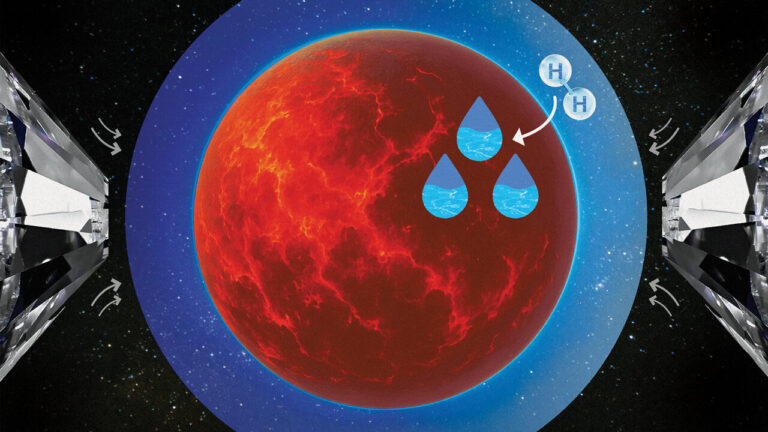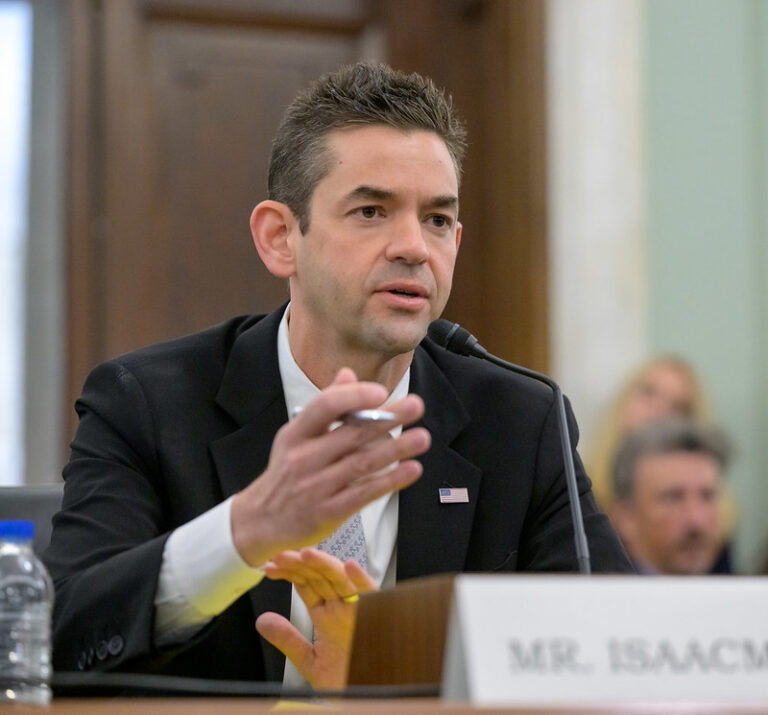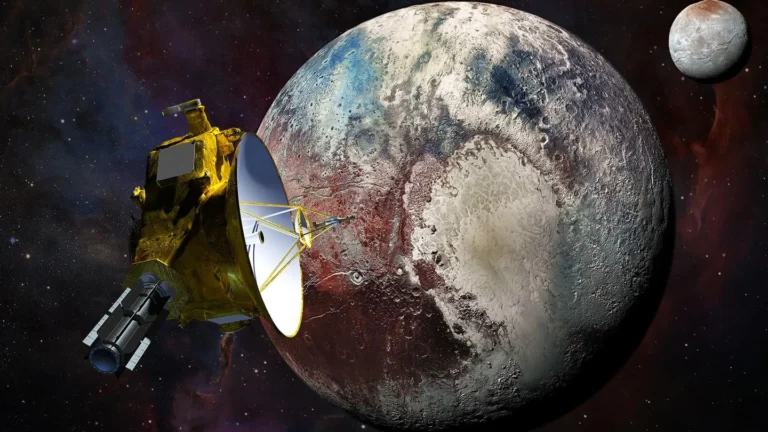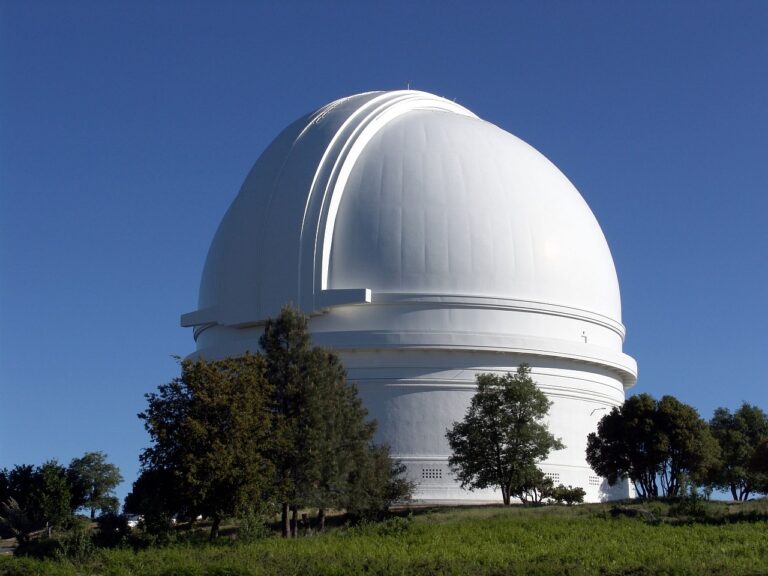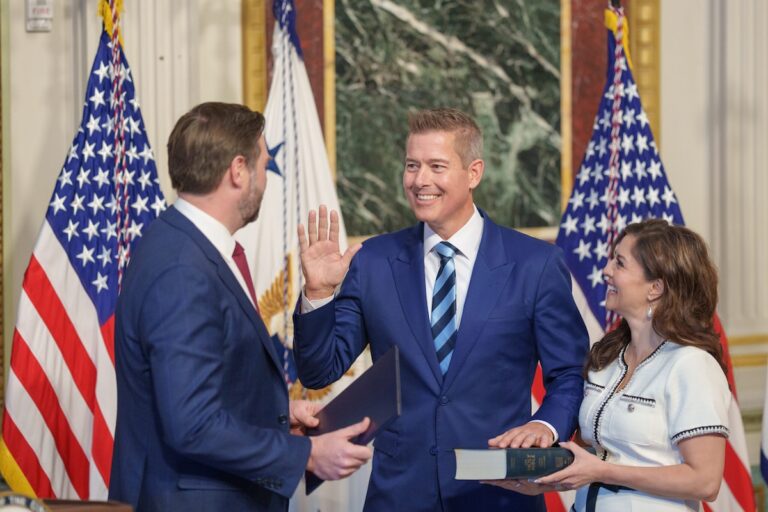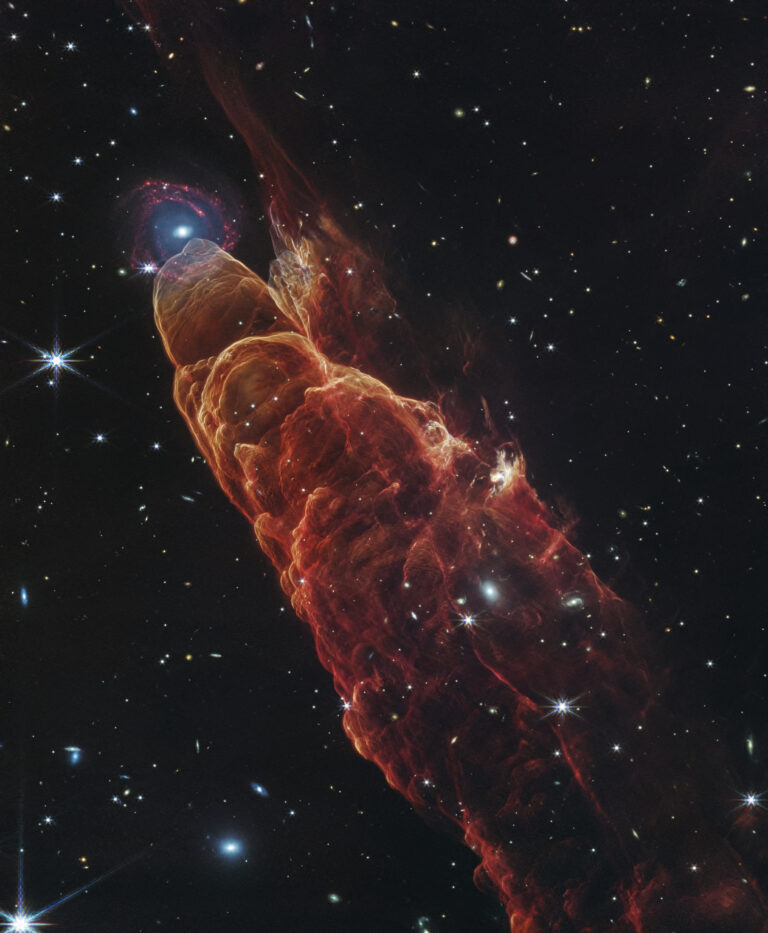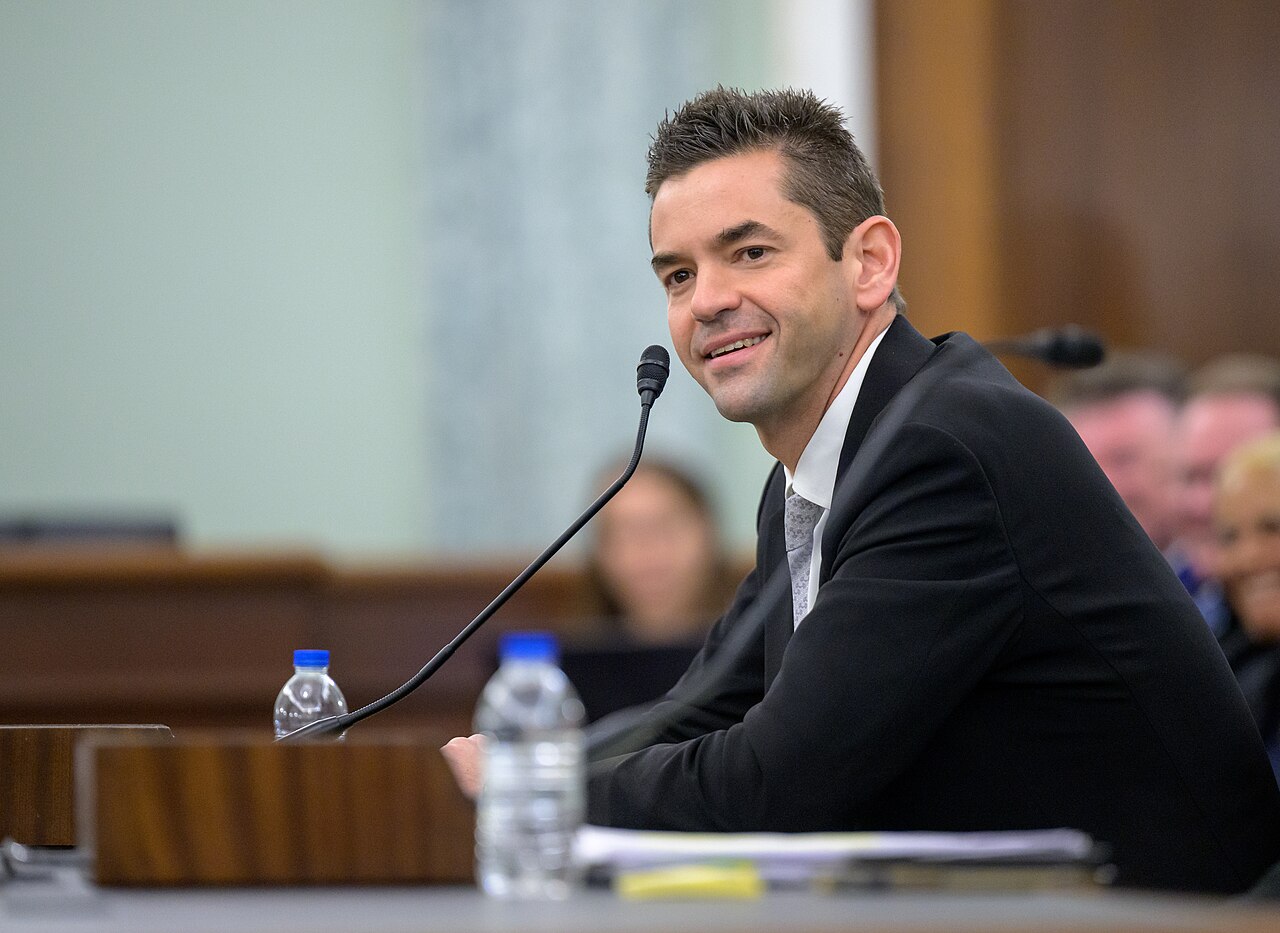
Key Takeaways:
- Jared Isaacman has been renominated by President Donald Trump for NASA Administrator, a position from which he was previously withdrawn in May following a review of prior associations.
- Isaacman's renomination closely followed the leak of his "Athena" manifesto, a draft strategic plan for NASA, which he subsequently clarified, denying reports of proposed closures of NASA centers or termination of specific programs.
- A discernible power struggle for the NASA leadership role is evident, with Isaacman intimating that interim NASA Administrator Sean Duffy, also a contender, was responsible for leaking the "Athena" plan, an action reportedly perceived by White House officials as an effort to undermine Isaacman's candidacy.
- Isaacman's vision for NASA, as outlined in "Athena," prioritizes streamlining agency activities, fostering commercial sector collaboration, and leveraging NASA as a force multiplier for science, which contrasts with Duffy's reported aim to integrate NASA into the Transportation Department with a focus on human spaceflight.
Jared Isaacman is back in the driver’s seat to lead NASA, and the entrepreneur and private astronaut could reshape the space agency as we know it.
In a post on his social media platform, Truth Social, on Monday, President Donald Trump officially renominated Isaacman for NASA administrator — a role for which he was previously nominated but ultimately removed from consideration in May. The Shift4 Payments founder, who has commanded two orbital missions he purchased from Elon Musk’s SpaceX, was expected to receive a confirmation vote in the Senate just days before the nomination was withdrawn.
Now, Isaacman — who had enjoyed broad industry and bipartisan support — appears to once again be on a fast track to lead the agency.
“The support from the space-loving community has been overwhelming,” he wrote in a social media post on Tuesday. “I am not sure how I earned the trust of so many, but I will do everything I can to live up to those expectations.”
Isaacman’s renomination comes days after the leak of his “Athena” manifesto — a plan to reshape NASA that he and his advisers devised earlier this year. On Tuesday, he refuted some reporting about the document, which was reportedly shared and discussed on Capitol Hill before being leaked to the press.
“It is true that Athena was a draft plan I worked on with a very small group from the time of my initial nomination through its withdrawal in May,” he wrote in a social media post. “Parts of it are now dated, and it was always intended to be a living document refined through data gathering post-confirmation. I would think it is better to have a plan going into a responsibility as great as the leadership of NASA than no plan at all.”
Isaacman intimated that U.S. Transportation Secretary Sean Duffy—who has served as interim NASA administrator since July — was responsible for the leak. He confirmed tech news website Ars Technica’s report that Duffy and his chief of staff received the only hard copy of the 62-page blueprint. Ars also reported that the leak swayed at least some corners of the space industry to favor Duffy over Isaacman, due to concerns about favoritism toward SpaceX.
“I learned it was leaked to reporters and across industry last week,” Isaacman said Tuesday. “It seems some people are letting politics get in the way of the mission and the president’s goals for space.”
Per Axios, White House officials believed the leaks were a coordinated effort by Duffy — who is also vying for the top NASA job — to cast doubt on Isaacman’s candidacy. One source told the outlet that White House Chief of Staff Susie Wiles made a “stern but friendly call” to Duffy, asking him to “knock it off.” A source described as close to Duffy denied this.
Earlier this month, The Wall Street Journal reported that Duffy hoped to move NASA into the Transportation Department, allowing him to oversee the agency without formally leading it. His vision for the space agency echoed that of Trump, who has placed heavy emphasis on human spaceflight over science missions.
Isaacman, by contrast, has softly criticized Trump’s proposed cuts to NASA science programs. His vision centers on streamlining the agency’s activities and working more closely with the private sector.
On Tuesday, he summarized what he described as the five core priorities of Athena: Reorganize and empower; American leadership in the high ground of space; solving the orbital economy; NASA as a force multiplier for science; and investing in the future.
Isaacman vs. Duffy
Isaacman’s path to renomination was a long and winding one.
It began in December, when Trump first tapped Isaacman for the role. Despite some concerns about his ties to Musk and apparent prioritization of missions to Mars over the moon, the Senate Commerce, Science, and Transportation Committee voted in April to advance his nomination.
In late May, though, Trump unexpectedly removed Isaacman from consideration after what the White House described as a “thorough review of prior associations” — including past donations to Democrats. Trump later described the private astronaut as a “blue-blooded Democrat, who had never contributed to a Republican before” and said it would be “inappropriate” for him to lead NASA.
But Isaacman believed it was retribution. Just days prior, Trump and Musk had a public fallout after the latter left his White House advisory role. Isaacman suggested “some people … that had some axes to grind” were behind the move.
“I’m not going to play dumb on this,” he said on the All-In podcast. “I don’t think timing was much of a coincidence … There were other changes going on the same day.”
A few months later, Duffy was appointed interim NASA administrator. But behind the scenes, a power struggle brewed.
According to The Wall Street Journal, Duffy held a “contentious” interview with Isaacman in October, and both men pitched their candidacies to Trump and his inner circle. Duffy reportedly asked contacts in the space industry to voice their concerns about his rival. One official told Axios that the leak of Athena was a final ploy to derail Isaacman’s rumored renomination.
In response to the Journal report, Musk took to his social media platform X, calling the Transportation Secretary “Sean Dummy” and accusing him of “trying to kill NASA.” Per Axios, the spat nearly torpedoed the renomination due to fears that Isaacman would be a proxy of Musk and SpaceX.
Ultimately, though, Trump “moved past” those concerns, with Wiles and Vice President J.D. Vance pushing for the Shift4 founder.
“Jared’s passion for Space, astronaut experience, and dedication to pushing the boundaries of exploration, unlocking the mysteries of the universe, and advancing the new Space economy, make him ideally suited to lead NASA into a bold new Era,” the president wrote on Truth Social, adding that Duffy “has done an incredible job.”
Isaacman’s vision
Ironically, given all of the reporting on Athena, Isaacman’s plans for NASA are not exactly clear.
On Tuesday, he refuted several points reported by Politico. For example, he said, Athena never called for the closure of NASA field centers or the “termination” of the Space Launch System (SLS) rocket and Gateway lunar space station — key components of the Artemis moon mission program.
“In fact, the word ‘Gateway’ is used only three times in the entire document,” Isaacman wrote. “It does explore the possibility of pivoting hardware and resources to a nuclear electric propulsion program after the objectives of the President’s budget are complete.”
Politico reported that Athena seeks to “flatten and streamline” NASA headquarters and investigate the “relevance and ongoing necessity” of field centers. Johnson Space Center in Houston, for example, could become a “human spaceflight center of excellence for NASA and eventually all commercial spaceflight missions.”
Other centers, such as the Jet Propulsion Laboratory in California, Isaacman reportedly criticized for having a “very expensive” contract structure. But he disputed that characterization as well.
“The report never even remotely suggested that America could ever do without the Jet Propulsion Laboratory,” Isaacman said. “Personally, I have publicly defended programs like the Chandra X-ray Observatory, offered to fund a Hubble reboost mission, and anything suggesting that I am anti-science or want to outsource that responsibility is simply untrue.”
Isaacman also took issue with the description of Athena’s “science-as-a-service” philosophy, which would entail NASA’s purchase of science data from the private sector rather than launching its own satellites. That suggestion, he said, was “specifically called out in the plan for Earth observation” only.
“Why build bespoke satellites at greater cost and delay when you could pay for the data as needed from existing providers and repurpose the funds for more planetary science missions (as an example)?” he said.
Isaacman did validate some reporting on Athena, such as its heavy emphasis on working with the commercial sector.
“This plan never favored any one vendor, never recommended closing centers, or directed the cancellation of programs before objectives were achieved,” Isaacman wrote. “The plan valued human exploration as much as scientific discovery. It was written as a starting place to give NASA, international partners, and the commercial sector the best chance for long-term success.
“The more I see the imperfections of politics and the lengths people will go, the more I want to serve and be part of the solution … because I love NASA and I love my country.”
Editor’s note: This story first appeared on FLYING

